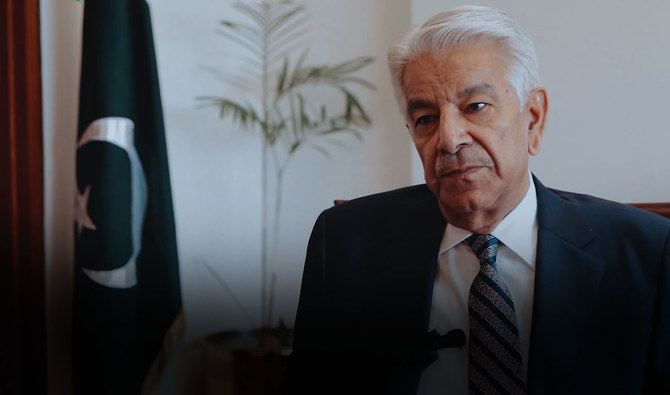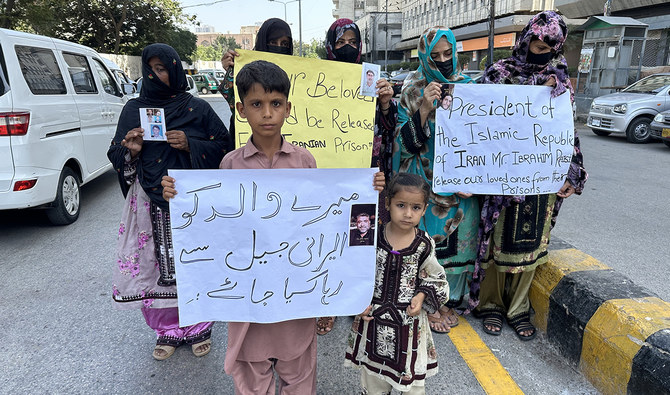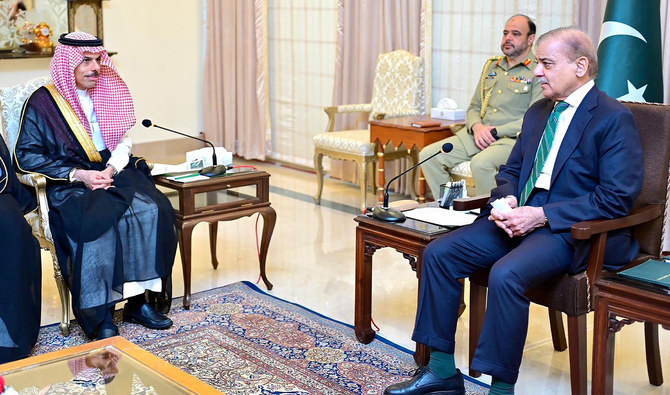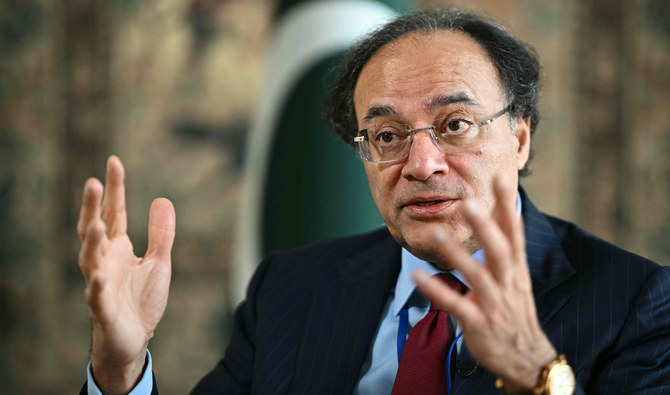ISLAMABAD: Pakistan’s Defense Minister Khawaja Asif said on Thursday that Saudi Arabia would be depositing funds worth $2 billion in the Pakistani central bank before the revival of a stalled $6.5 billion International Monetary Fund (IMF) bailout program, amid desperate attempts by the South Asian country to secure external financing to avoid a default.
Pakistan, a nation of over 220 million, has been facing an economic crisis for the last several months, with soaring inflation, a depreciating currency and critically low foreign exchange reserves. To avert the possibility of a default on its international obligations, the government has been striving for the resumption of the IMF loan program, stalled since November last year.
In March, the IMF asked Pakistan to secure financing assurances from friendly states and multilateral donors before it could release $1.1 billion tranche, after which China rolled over its $2 billion loan to the cash-strapped South Asian nation. This was followed by a $2 billion pledge by Saudi Arabia and the UAE promising $1 billion support to Islamabad.
However, the global lender has yet to sanction the release of funds. To keep the frail economy afloat, the South Asian country is facing the daunting task of securing the crucial IMF funds ahead of its budget for the next fiscal year on June 9.
“The IMF asked them (Saudi Arabia) to give that commitment to them. They (Saudi Arabia) have already given that, that means that they will pay [the funds to Pakistan],” Asif told Arab News in an exclusive interview on Thursday.
“I think, if I am not wrong, they will be depositing that money ($2 billion) before the IMF program. The IMF is not giving us something, not a big amount. It is just a program which we have to complete till 30th of June.”
Pakistan’s IMF bailout program is set to expire on June 30, which has prompted the government to look for other options to avert a sovereign default.
“We are receiving help from UAE, Saudi Arabia, China and some other sources also,” Asif said. “We hope to, God willing, come out of this economic wilderness very soon.”
Earlier this year, the defense minister said in one of his statements that Pakistan had already defaulted, stirring a debate and fueling commotion within the country’s business community.
“My use of the word default perhaps was not very accurate or very appropriate, but the fact remains that we are in a dire financial situation, we were in dire financial situation and we are still not out of the woods,” he replied, when asked about his statement.
Asif said he was “just trying to explain” by using the word default that Pakistan was borrowing money to service its loans.
During the interview, the minister lauded Saudi Arabia for its assistance to Pakistan on several occasions and expressed profound regard for the Saudi royal family.
“Saudi Arabia, the land obviously, is the ultimate sacredness for us, the two holy cities. And our relationship with Saudi Arabia has a long history of brotherhood and respect and love for each other,” he said.
“I have no words to explain that the feelings we have for Saudi Arabia and the ruling family of Saudi Arabia. They have helped us at very crucial junctures of our history in last 75 years and we are indebted to them.”
He vowed to place all resources of Pakistan at the Kingdom’s disposal for its protection and safety.
“And our forces or our resources, whatever resources we have mostly defense related, they will always be at the disposal of the Kingdom of Saudi Arabia for their defense, their protection,” Asif said.
“Whatever worth we are, we will always stand by the Kingdom of Saudi Arabia.”
Arab News also questioned Asif about the return of his Pakistan Muslim League-Nawaz (PML-N) party’s supremo and three-time former prime minister, Nawaz Sharif, to Pakistan. To which, Asif said said they were following a legal way to get his conviction in corruption cases overturned before his return to the country from London.
Sharif, who is the elder brother of sitting Pakistan PM Shehbaz Sharif, was restricted for life from holding any political office by Pakistan’s top court in April 2018, followed by his conviction in a corruption case the same year. The ex-premier, who left for London in 2019 after securing bail on medical grounds and has since not returned, says the cases against him were politically motivated.
“He will be returning soon. There are some legal hurdles, the sentence he received during 2017-18 when engineering to bring Imran Khan to power was taking place,” Asif said. “He [Sharif] had to be replaced and sentenced, that was a plan.”
The defense minister said the “circumstances” forced Sharif to stay in exile in London.
“He is still suffering, and he is in exile not because of his own choice,” he said, adding that Sharif was dismissed on the “most frivolous” charge of not receiving money from his son’s company.
“We have to secure his position legally before he returns. I think that will happen soon. We are following the legal path to secure that, nothing, something which is beyond legal realm.”
The minister said they were working on a legal strategy to get Sharif’s conviction overturned from the Supreme Court.
“We are seeking a judicial remedy to that,” he said, adding that they would be filing a petition for it in the Supreme Court. “It’ll happen. You’ll come to know about it.”
















